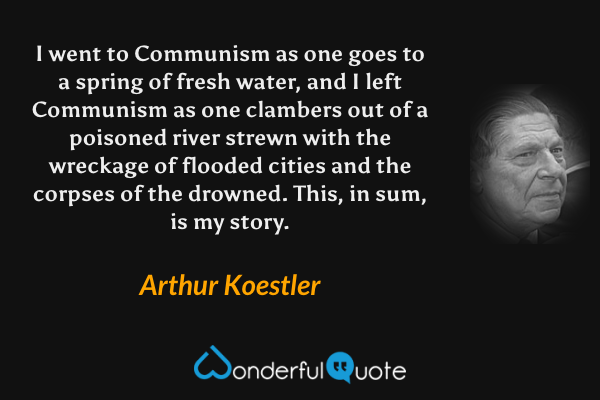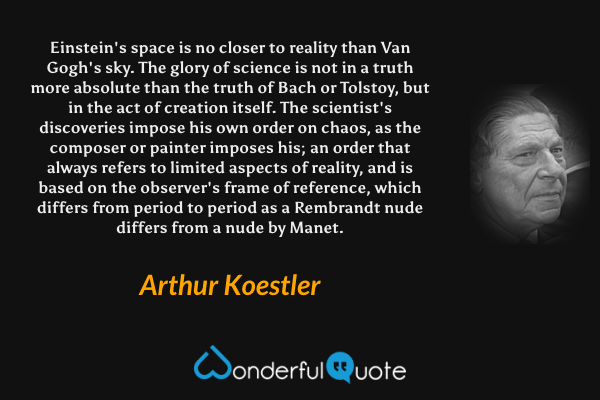Arthur Koestler Quotes
Most popular Arthur Koestler Quotes

Thou shalt not carry moderation into excess.

True creativity often starts where language ends.

Yesterday's daring metaphors are today's clichés.

Scientists are peeping toms at the keyhole of eternity.

No death is so sad and final as the death of an illusion.

Definition of adolescence: A Kind of emotional seasickness.

We can add to our knowledge, but we cannot subtract from it.

The more original a discovery, the more obvious it seems afterward.

God seems to have left the receiver off the hook, and time is running out.

One may not regard the world as a sort of metaphysical brothel for emotions.

Adolescence is a kind of emotional seasickness. Both are funny, but only in retrospect.

It has been said that discovery consists in seeing an analogy which nobody had seen before.

The prerequisite of originality is the art of forgetting, at the proper moment, what we know.

The principal mark of genius is not perfection but originality, the opening of new frontiers.

The most persistent sound which reverberates through man's history is the beating of war drums.

The limitations of our biological equipment may condemn us to the role of Peeping Toms at the keyhole of eternity.

Creative activity could be described as a type of learning process where teacher and pupil are located in the same individual.

The progress of science is strewn, like an ancient desert trail, with the bleached skeleton of discarded theories which once seemed to possess eternal life.

The principle mark of genius is not perfection, but originality, the opening of new frontiers; once this is done, the conquered territory becomes common property.

Zen is to religion what a Japanese "rock garden" is to a garden. Zen knows no god, no afterlife, no good and no evil, as the rock-garden knows no flowers, herbs or shrubs. It has no doctrine or holy writ.

I went to Communism as one goes to a spring of fresh water, and I left Communism as one clambers out of a poisoned river strewn with the wreckage of flooded cities and the corpses of the drowned. This, in sum, is my story.

In my youth I regarded the universe as an open book, printed in the language of physical equations, whereas now it appears to me as a text written in invisible ink, of which in our rare moments of grace we are able to decipher a small fragment.

Einstein's space is no closer to reality than Van Gogh's sky. The glory of science is not in a truth more absolute than the truth of Bach or Tolstoy, but in the act of creation itself. The scientist's discoveries impose his own order on chaos, as the composer or painter imposes his; an order that always refers to limited aspects of reality, and is based on the observer's frame of reference, which differs from period to period as a Rembrandt nude differs from a nude by Manet.


